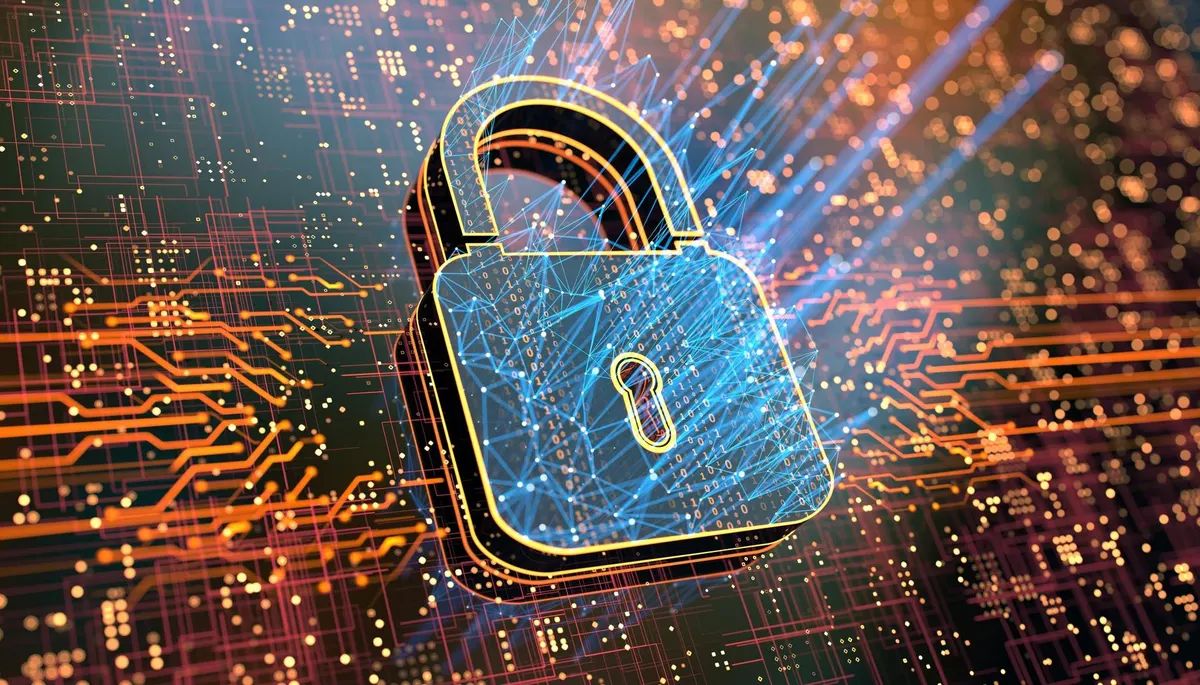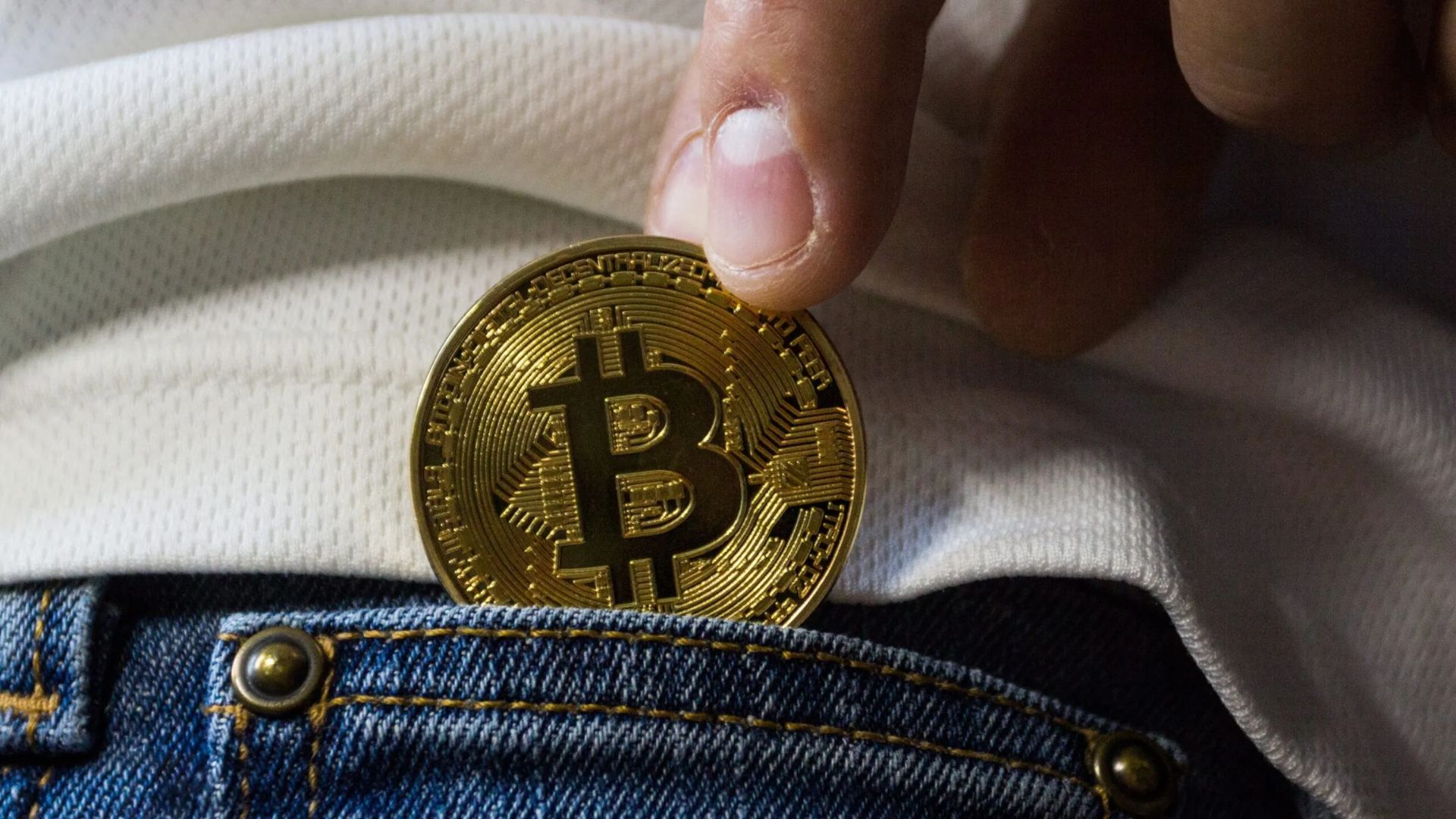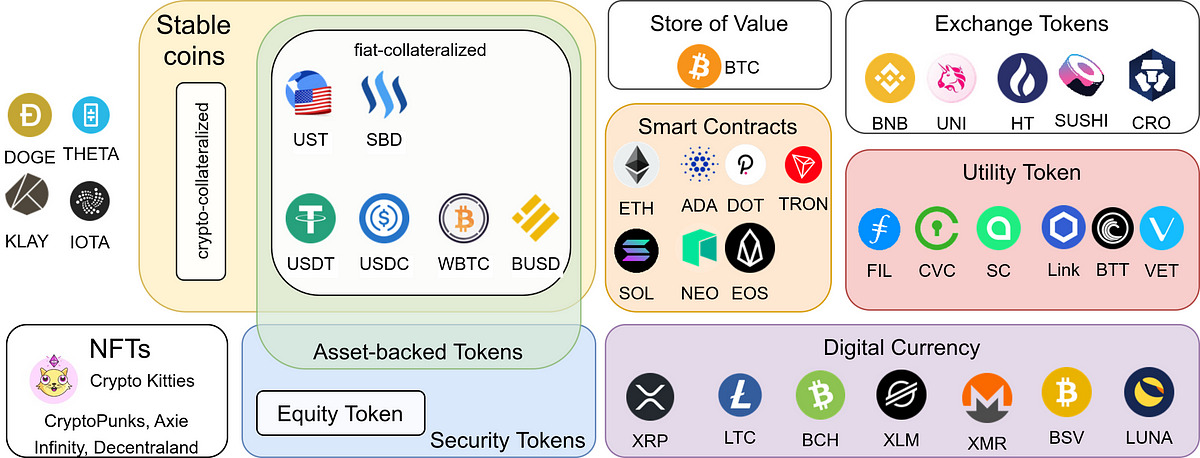Introduction
Cryptocurrency has gained considerable attention and popularity in recent years. As it becomes an increasingly mainstream form of digital currency, questions about its security have also come to the forefront. With the potential for high-value transactions and the decentralized nature of cryptocurrencies, ensuring their security has become vital for individuals and businesses alike.
In this article, we will explore the various aspects of cryptocurrency security and delve into the measures you can take to keep your digital assets safe. From understanding blockchain technology to safeguarding your private keys, we will provide you with valuable insights and best practices to help you navigate this ever-evolving landscape.
Before we dive into the specifics, it’s important to note that cryptocurrency security is a multifaceted topic. There are several layers of security measures that work together to protect your digital assets. From the underlying technology to the way you store and manage your cryptocurrency, each aspect plays a crucial role in ensuring the safety and integrity of your transactions.
Throughout this article, we will discuss the basics of cryptocurrency security, the role of blockchain technology in enhancing security, the importance of public and private key encryption, the different types of cryptocurrency wallets and how to secure them, the benefits of two-factor authentication, common security risks and how to mitigate them, as well as best practices for staying safe on cryptocurrency exchanges.
By the end of this article, you will have a solid understanding of cryptocurrency security and the necessary tools and practices to protect your digital assets. So, let’s delve into the world of cryptocurrency security and explore how you can secure your investments.
The Basics of Cryptocurrency Security
When it comes to cryptocurrency security, understanding the fundamental concepts is essential to protect your digital assets. Here are the key factors that contribute to the security of cryptocurrencies:
- Decentralization: One of the unique aspects of cryptocurrencies is their decentralized nature. Unlike traditional centralized financial systems, cryptocurrencies operate on a distributed ledger called a blockchain. This decentralized structure makes it difficult for hackers or malicious actors to manipulate the system.
- Cryptography: Cryptocurrencies heavily rely on cryptographic principles to secure transactions and wallets. Cryptography ensures that transactions are encrypted and verified, making it almost impossible for unauthorized parties to access or manipulate the data.
- Immutable Transactions: Blockchain technology makes transactions recorded on the blockchain immutable, meaning they cannot be altered or tampered with once confirmed. This feature adds an extra layer of security, as it provides transparency and integrity to the transaction history.
- Consensus Mechanisms: Cryptocurrencies use various consensus mechanisms, such as Proof of Work (PoW) or Proof of Stake (PoS), to validate and confirm transactions. These mechanisms require network participants, known as validators or miners, to solve complex mathematical problems or hold a certain stake in the network to secure the blockchain and prevent fraudulent activities.
- Wallet Security: Cryptocurrency wallets are digital storage solutions that store your public and private keys, which are essential for accessing and managing your cryptocurrencies. Wallet security is crucial to protect your funds from unauthorized access or theft. Choosing the right type of wallet and implementing stringent security measures is paramount.
- Phishing and Social Engineering: Another important aspect of cryptocurrency security is being vigilant against phishing attacks and social engineering attempts. Hackers often use deceptive tactics, such as fake websites or emails, to trick users into revealing their private keys or login credentials. By staying informed and practicing caution, you can minimize the risk of falling victim to such attacks.
Understanding these basics will lay a solid foundation for your cryptocurrency security knowledge. In the following sections, we will delve deeper into specific security measures and best practices to ensure the safety of your digital assets. From blockchain technology to encryption methods and secure wallet management, we will equip you with the necessary tools to protect your investments in the cryptocurrency world.
Blockchain Technology and Security
Blockchain technology is the backbone of cryptocurrencies and plays a crucial role in ensuring their security. It is an immutable and transparent digital ledger that records all transactions across a decentralized network of computers.
One of the key security benefits of blockchain technology is its immutability. Once a transaction is recorded on the blockchain, it becomes permanent and cannot be altered. This feature prevents tampering or fraud, as each transaction is linked to the previous one, creating a chain of cryptographic hashes.
The decentralized nature of blockchain technology also enhances security. Unlike traditional centralized systems, where a single point of failure can compromise the entire network, blockchain relies on a network of computers, or nodes, to validate and confirm transactions. This distributed nature makes it extremely difficult for hackers to manipulate the system, as they would need to control a majority of the nodes, which is highly unlikely and resource-intensive.
Cryptocurrencies like Bitcoin and Ethereum utilize blockchain technology to secure their transactions. Every transaction made with these cryptocurrencies is permanently recorded on the blockchain, ensuring transparency and accountability.
In addition to transaction security, blockchain technology also enables secure storage and management of digital assets. Smart contracts, which are self-executing contracts with predefined rules and conditions, are stored and executed on the blockchain. These smart contracts provide an extra layer of security, as they are executed automatically without the need for intermediaries. This eliminates the risk of fraud or manipulation by third parties.
However, it’s important to note that while blockchain technology provides a high level of security, it is not completely immune to vulnerabilities. One potential risk is a 51% attack, where a single entity gains control of the majority of the network’s computing power. This could allow them to manipulate transactions or double-spend coins. However, such attacks are difficult to execute and are unlikely to occur on well-established and widely used blockchain networks.
To sum up, blockchain technology forms the foundation of cryptocurrency security. Its decentralized and immutable nature ensures the integrity and transparency of transactions, making it a robust and secure system for conducting financial transactions in the digital world.
Public and Private Key Encryption
Public and private key encryption is a fundamental aspect of cryptocurrency security. It provides a secure way to authenticate and authorize transactions while ensuring the privacy of the users involved.
When you create a cryptocurrency wallet, you generate a pair of cryptographic keys: a public key and a private key. The public key is openly shared and serves as your wallet’s address, allowing others to send you cryptocurrency. The private key, on the other hand, is kept secret and is used to sign transactions and gain access to your funds.
The process of encryption and decryption relies on mathematical algorithms. Transactions are signed with your private key, which creates a unique digital signature that can be verified using your public key. This ensures that the transaction is authorized by you and prevents tampering.
Public and private key encryption provides several security benefits for cryptocurrencies:
- Secure Transactions: Cryptocurrency transactions are secure because they require the private key to sign and authorize them. Without the private key, it is virtually impossible for anyone to access or spend your digital assets.
- Wallet Address Privacy: The use of public and private key encryption allows you to receive cryptocurrency without revealing personal information. Your public key is simply a random string of characters and does not disclose any identifiable information.
- Protection against Forgery: The digital signatures created by signing transactions with your private key protect against forgery and ensure the authenticity of the transaction. If any part of the transaction is altered, the signature will no longer match, indicating tampering.
- Secure Communication: Public and private key encryption can also be used for secure communication between parties. By encrypting messages with the recipient’s public key, only the recipient with the corresponding private key can decrypt and read the message.
It is crucial to keep your private key secure and confidential. Anyone who gains access to your private key has control over your funds. There are different types of secure storage options for private keys, including hardware wallets, software wallets, and offline cold storage.
In summary, public and private key encryption is a vital component of cryptocurrency security. It ensures the integrity of transactions, protects the privacy of wallet addresses, and provides a secure method of communication in the digital realm.
Cryptocurrency Wallets: A Closer Look
Cryptocurrency wallets are digital tools that allow users to securely store and manage their digital assets. These wallets come in various forms, each with its own unique features and security considerations.
There are different types of cryptocurrency wallets, including:
- Software Wallets: These wallets are software applications that can be installed on your computer or smartphone. They provide easy accessibility and convenience, allowing you to send, receive, and store your cryptocurrencies. However, they are susceptible to malware and hacking attacks, so it is important to ensure you have up-to-date security measures in place.
- Hardware Wallets: Hardware wallets are physical devices designed specifically for storing cryptocurrencies. They are considered the most secure type of wallet as they store your private keys offline, away from potential online threats. Hardware wallets require physical access to the device to make transactions, adding an extra layer of security.
- Online Wallets: Also known as web wallets, online wallets are wallets that are hosted on third-party platforms or exchanges. While they offer easy access and convenience, they are more vulnerable to hacking and phishing attacks. It is crucial to choose reputable platforms and enable additional security measures such as two-factor authentication.
- Paper Wallets: Paper wallets involve printing your public and private keys and storing them in physical form. This offline method provides a high level of security as long as the paper wallet is kept in a safe place and protected from damage or unauthorized access.
- Multi-Signature Wallets: Multi-signature wallets require multiple private keys to authorize a transaction. This adds an extra layer of security, as it requires the approval of multiple parties before a transaction can take place. This type of wallet is often used by businesses or organizations that require a higher level of security and oversight.
When choosing a cryptocurrency wallet, it is important to consider factors such as ease of use, security features, and your individual needs. It is recommended to diversify your storage by using a combination of different types of wallets based on the amount of cryptocurrency you hold and the level of accessibility you require.
In addition to the type of wallet, it is crucial to implement proper security measures to protect your wallets:
- Secure Backup: Regularly backup your wallet and keep multiple copies in safe and secure locations. This ensures that you can recover your funds in case of device failure or loss.
- Strong Passwords: Use strong, unique passwords for your wallets, and consider using a password manager to store and generate complex passwords.
- Offline Storage: Whenever possible, store your funds in offline cold storage wallets as they are less susceptible to online threats.
By understanding the different types of wallets available and implementing proper security practices, you can ensure the safety and integrity of your cryptocurrency holdings.
Securely Managing Private Keys
Private keys are the most critical component of cryptocurrency security. They grant ownership and control over your digital assets. Therefore, it is crucial to manage them securely to prevent unauthorized access or loss of funds.
Here are some essential practices for securely managing your private keys:
- Generate Strong Private Keys: Use a reliable random number generator or a trusted key generator tool to create strong and unpredictable private keys. Avoid using easily guessable or common phrases, as these can be vulnerable to brute force attacks.
- Use Cold Storage: Cold storage refers to keeping your private keys and cryptocurrencies offline in a secure and offline storage device, such as a hardware wallet or a paper wallet. This reduces the risk of online threats and hacking attempts.
- Keep Private Keys Confidential: Never share your private keys with anyone. Keep them confidential and avoid storing them on online platforms or sharing them through unsecured channels.
- Implement Two-Factor Authentication: Enable two-factor authentication (2FA) on wallets or platforms that support it. This adds an extra layer of security by requiring a second verification step, such as a fingerprint scan or a one-time password, along with your private key to authorize transactions.
- Regularly Update Wallet Software: Keep your wallet software and any associated apps or tools up to date. Developers often release updates to address security vulnerabilities and improve overall security.
- Backup Your Wallet: Regularly backup your wallet’s data, including the private keys, and store the backup in a secure and offline location. This ensures that you can recover your funds in case of device loss or failure.
- Consider Multisig Wallets: Multisignature wallets require multiple private keys to authorize a transaction. This shared control adds an extra layer of security, as it requires the approval of multiple parties to initiate a transaction.
- Be Cautious of Phishing Attempts: Be vigilant against phishing attempts and malicious websites. Hackers may try to trick you into revealing your private keys through fake websites or emails. Always double-check the URL and verify the authenticity of the platform before entering your private keys.
By following these best practices, you can significantly enhance the security of your private keys and protect your cryptocurrency investments from unauthorized access or fraudulent activities.
Two-Factor Authentication for Added Security
Two-factor authentication (2FA) is a security measure that provides an additional layer of protection to your cryptocurrency accounts and wallets. It adds an extra step of verification, making it more difficult for unauthorized individuals to gain access to your digital assets.
Here are the key aspects of implementing two-factor authentication for added security:
How it Works: Two-factor authentication combines two different authentication factors: something you know (such as a password or PIN) and something you have (such as a mobile device or hardware token). This means that even if someone guesses or steals your password, they would still need the second factor to access your account or wallet.
Types of 2FA: There are various forms of two-factor authentication commonly used in the cryptocurrency space:
- One-Time Passwords (OTP): OTPs are temporary codes that are generated either through an app on your mobile device or received via SMS. These codes are used as the second factor to authenticate your identity when logging in or initiating a transaction.
- Hardware Tokens: Hardware tokens are physical devices that generate time-based or event-based OTPs. These devices are separate from your computer or mobile device and provide an additional layer of security as the OTPs are not generated through software.
- Biometric Authentication: Biometric factors, such as fingerprint or facial recognition, can also be used as the second factor for authentication. These methods rely on unique physical characteristics to ensure the security of your account or wallet.
Enabling 2FA: To enable two-factor authentication, you will need to link your cryptocurrency account or wallet to a 2FA app or register your mobile number for receiving SMS-based OTPs. After enabling 2FA, you will be required to enter the OTP or provide the second factor during the authentication process.
Benefits of 2FA: Two-factor authentication significantly enhances the security of your cryptocurrency accounts and wallets in several ways:
- Protection against Password Theft: Even if someone manages to obtain your password, they would still need access to the second factor (such as your mobile device) to gain entry into your account or wallet.
- Mitigation of Phishing Attacks: 2FA adds another layer of defense against phishing attempts. Even if you unknowingly provide your login credentials on a fake website, the attacker would not have the second factor required to access your account.
- Secure Transaction Authorization: With 2FA enabled, any attempt to initiate a transaction would require the second factor to be verified. This ensures that even if someone gains access to your account, they cannot withdraw or transfer your funds without the second factor.
It is highly recommended to enable two-factor authentication for all your cryptocurrency accounts and wallets. The extra layer of security significantly reduces the risk of unauthorized access and provides you with peace of mind knowing that your digital assets are well protected.
Common Security Risks and How to Avoid Them
While cryptocurrencies offer exciting investment opportunities and decentralized transactions, they also come with their fair share of security risks. Understanding these risks and taking proactive measures to mitigate them is crucial for ensuring the safety of your digital assets. Here are some common security risks associated with cryptocurrencies and practical methods to avoid them:
1. Phishing Attacks: Phishing attacks involve fraudulent attempts to obtain sensitive information, such as private keys or login credentials, by posing as a legitimate entity. To avoid falling victim to phishing attacks:
- Always double-check the URL of the website before entering any sensitive information.
- Avoid clicking on suspicious links or downloading attachments from unknown sources.
- Enable two-factor authentication and verify the authenticity of any request for OTPs or verification codes.
2. Malware and Viruses: Malicious software and viruses can compromise the security of your cryptocurrency wallets and steal your private keys. To protect against malware:
- Use reliable and up-to-date antivirus software to scan your devices regularly.
- Avoid downloading files or apps from untrusted sources.
- Keep your operating system and software up to date with the latest security patches.
3. Weak Passwords: Weak passwords make it easier for attackers to gain unauthorized access to your cryptocurrency accounts. Create strong and unique passwords:
- Use a combination of uppercase and lowercase letters, numbers, and special characters.
- Avoid using commonly used phrases or personal information that can be easily guessed.
- Consider using a password manager to generate and store complex passwords.
4. Lack of Wallet Security: Failing to apply adequate security measures to your cryptocurrency wallets puts your funds at risk. To secure your wallets:
- Choose reputable wallet providers and keep your wallet software up to date.
- Implement two-factor authentication (2FA) for an added layer of security.
- Use offline storage options, such as hardware wallets or paper wallets, for long-term storage of your cryptocurrencies.
5. Unsecured Wi-Fi Networks: Using unsecured public Wi-Fi networks can expose your sensitive information to potential hackers. To protect your data:
- Avoid accessing your cryptocurrency accounts or making transactions when connected to public Wi-Fi.
- Use a virtual private network (VPN) when accessing your accounts on the go.
- Ensure your home Wi-Fi network is secure, with a strong password and encryption enabled.
By being aware of these common security risks and implementing the necessary precautions, you can significantly reduce the likelihood of falling victim to attacks and safeguard your cryptocurrency investments.
Staying Safe on Cryptocurrency Exchanges
Cryptocurrency exchanges play a crucial role in buying, selling, and trading digital assets. However, they can also be targets for hackers and scammers. To ensure the safety of your funds and personal information while using cryptocurrency exchanges, here are key practices to follow:
Choose Reputable Exchanges: Select well-established and reputable cryptocurrency exchanges with a track record of security and positive user reviews. Research the exchange’s security measures, regulatory compliance, and transparency.
Enable Two-Factor Authentication (2FA): Use two-factor authentication for your exchange account. By enabling 2FA, you add an additional layer of security and protect your account from unauthorized access.
Secure Your Account: Set a strong and unique password for your exchange account. Avoid reusing passwords used for other accounts. Regularly monitor and update your login credentials.
Enable Withdrawal Whitelisting: Many exchanges allow users to whitelist wallet addresses for withdrawals. By enabling this feature, you can ensure that funds can only be withdrawn to pre-approved addresses, reducing the risk of unauthorized withdrawals.
Be Cautious of Phishing Attempts: Attackers can impersonate legitimate exchanges through well-crafted phishing emails, websites, or mobile apps. Be vigilant and double-check the URL and security certificates of the exchange’s website. Avoid clicking on suspicious links or downloading apps from untrusted sources.
Use Hardware Wallets for Storage: Consider withdrawing your cryptocurrencies from the exchange and storing them in a secure hardware wallet. Hardware wallets provide an added layer of security by keeping your private keys offline and separate from potential online threats.
Monitor Account Activity: Regularly review your account activity and transaction history on the exchange. Immediately report any unauthorized or suspicious activity to the exchange’s customer support.
Stay Informed: Keep up to date with the latest security practices and news in the cryptocurrency industry. Follow reputable sources and communities to stay informed about new threats and security measures.
Implement Secure Network Connections: When accessing your exchange account, use a secure and private network connection. Avoid using public Wi-Fi or unsecured networks that may expose your sensitive information to potential attacks.
Be Wary of Third-Party Services: Exercise caution when using third-party services that interact with exchanges, such as trading bots or portfolio trackers. Ensure that these services have proper security measures and use API keys with limited permissions.
By following these best practices, you can enhance the security of your cryptocurrency exchange activities and reduce the risk of falling victim to scams, hacking attempts, or unauthorized access to your funds.
Protecting Your Cryptocurrency Investment
Protecting your cryptocurrency investment is essential to safeguard your digital assets and ensure long-term financial security. Here are key strategies to protect your cryptocurrency investment:
Research and Due Diligence: Before investing in any cryptocurrency, thoroughly research and understand the project, its team, and its underlying technology. Look for projects with a solid track record, clear roadmap, and a strong community following.
Set Realistic Investment Goals: Define your investment goals, time horizon, and risk tolerance. Cryptocurrency markets can be highly volatile, so it is important to set realistic expectations and not invest more than you are willing to lose.
Diversify Your Portfolio: Spread your investments across different cryptocurrencies and sectors. Diversification helps reduce the risk of significant losses in the event that a particular cryptocurrency or sector experiences a downturn.
Keep Your Private Keys Secure: Protect your private keys at all costs. Use secure offline storage options, such as hardware wallets or paper wallets, to store your private keys. Keep backups of your private keys in multiple secure locations.
Stay Updated with Security Measures: Stay informed about the latest security measures and best practices in the cryptocurrency industry. Follow reputable sources, forums, and official announcements to remain up to date on potential risks and security improvements.
Regularly Update Your Software: Keep your wallet software, operating system, and any associated tools or apps up to date with the latest security patches. Developers frequently release updates to address vulnerabilities and improve overall security.
Use Strong Authentication: Enable two-factor authentication (2FA) on all your cryptocurrency-related accounts. Two-factor authentication adds an extra layer of security by requiring a second verification step, such as a password and a unique code sent to your mobile device.
Be Cautious of Publicity and Social Media Hype: Exercise caution when making investment decisions based solely on social media posts or hype. Do your own research and make informed decisions rather than following trends or falling for unrealistic promises.
Be Wary of Scams and Ponzi Schemes: Be vigilant for potential scams and fraudulent schemes. Avoid participating in suspicious investment opportunities that promise unrealistic returns or require you to recruit others. Remember, if it sounds too good to be true, it probably is.
Regularly Monitor Your Investments: Stay proactive in monitoring your cryptocurrency investments. Keep track of market trends, news, and events that could impact your investments. Regularly evaluate your portfolio and consider adjusting your holdings based on market conditions.
Consider Professional Advice: If you are unsure about managing your cryptocurrency investment, consider seeking advice from a financial advisor or consulting with experts in the field. They can provide guidance tailored to your specific needs and help you make informed decisions.
By implementing these strategies, you can protect your cryptocurrency investment and increase the likelihood of long-term success in the ever-evolving cryptocurrency market.
Conclusion
Cryptocurrency security is a vital consideration for anyone involved in the world of digital assets. Understanding the basics of cryptocurrency security, such as decentralized blockchain technology and public-private key encryption, forms the foundation of protecting your investments.
By implementing best practices, such as securely managing private keys, using two-factor authentication, and choosing reliable cryptocurrency wallets, you can significantly enhance the security of your digital assets. Staying vigilant against common security risks, such as phishing attacks and malware, is also essential.
When engaging with cryptocurrency exchanges, it is crucial to prioritize safety by selecting reputable platforms, enabling two-factor authentication, and being cautious of potential scams. Protecting your investment involves thorough research, diversification, and staying informed of market trends and security measures.
Remember, safeguarding your cryptocurrency investment requires ongoing effort and commitment. Stay proactive, monitor your accounts regularly, and adapt your security measures as technology and threats evolve. By staying informed, following best practices, and seeking professional advice when needed, you can navigate the cryptocurrency landscape with confidence.
Ultimately, the security of your cryptocurrency investment lies in your hands. By taking the necessary precautions and staying informed, you can protect your digital assets and enjoy the potential benefits that cryptocurrencies offer in the exciting world of finance and technology.

























